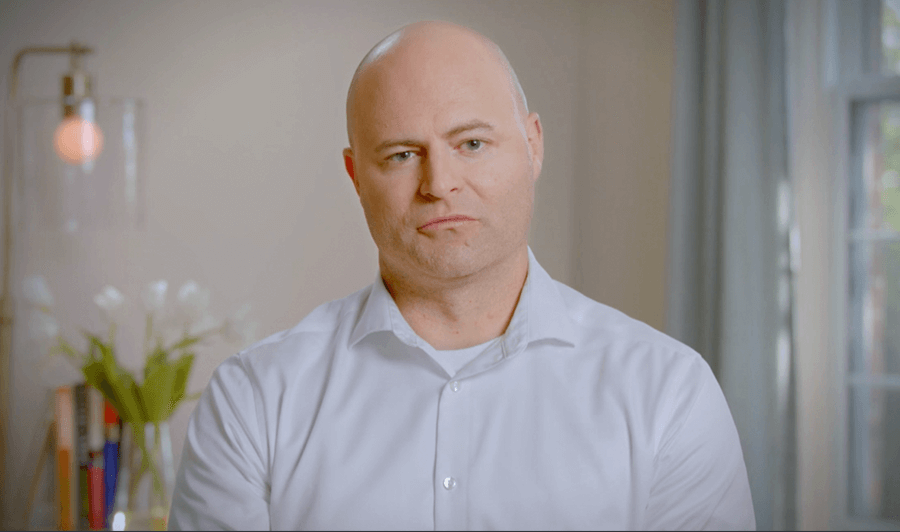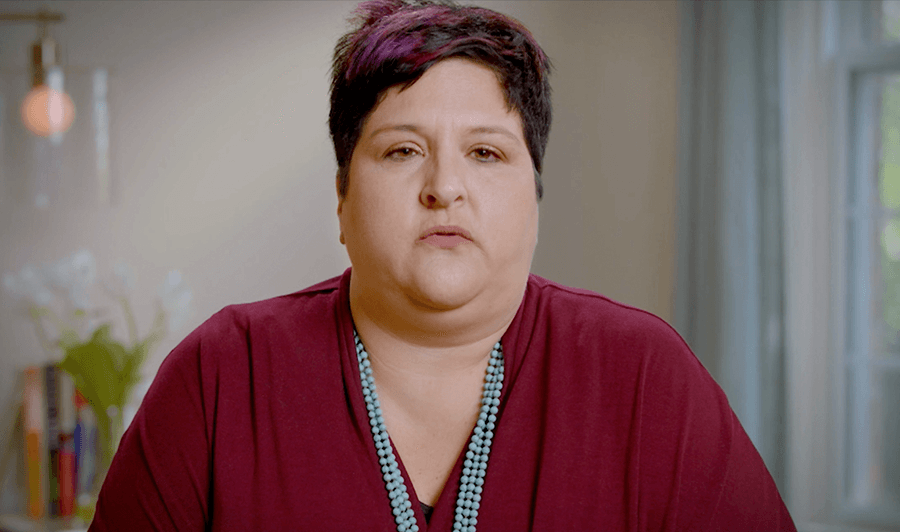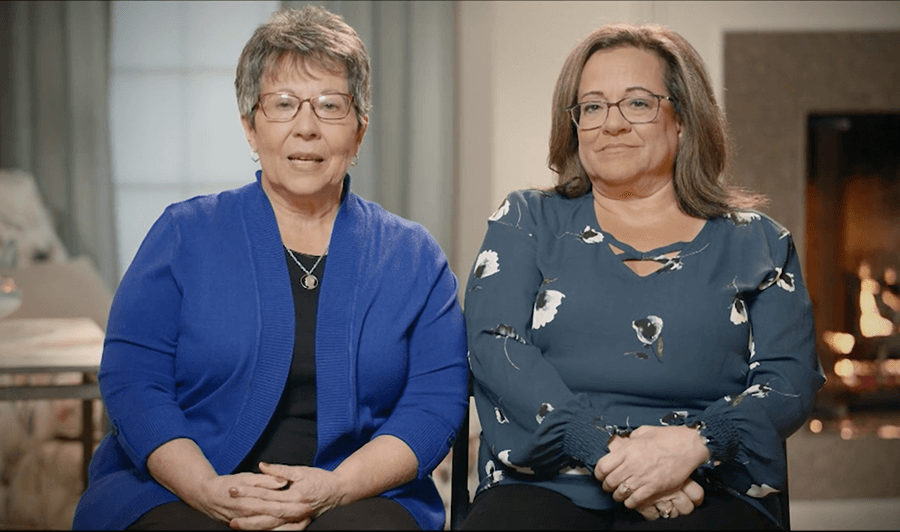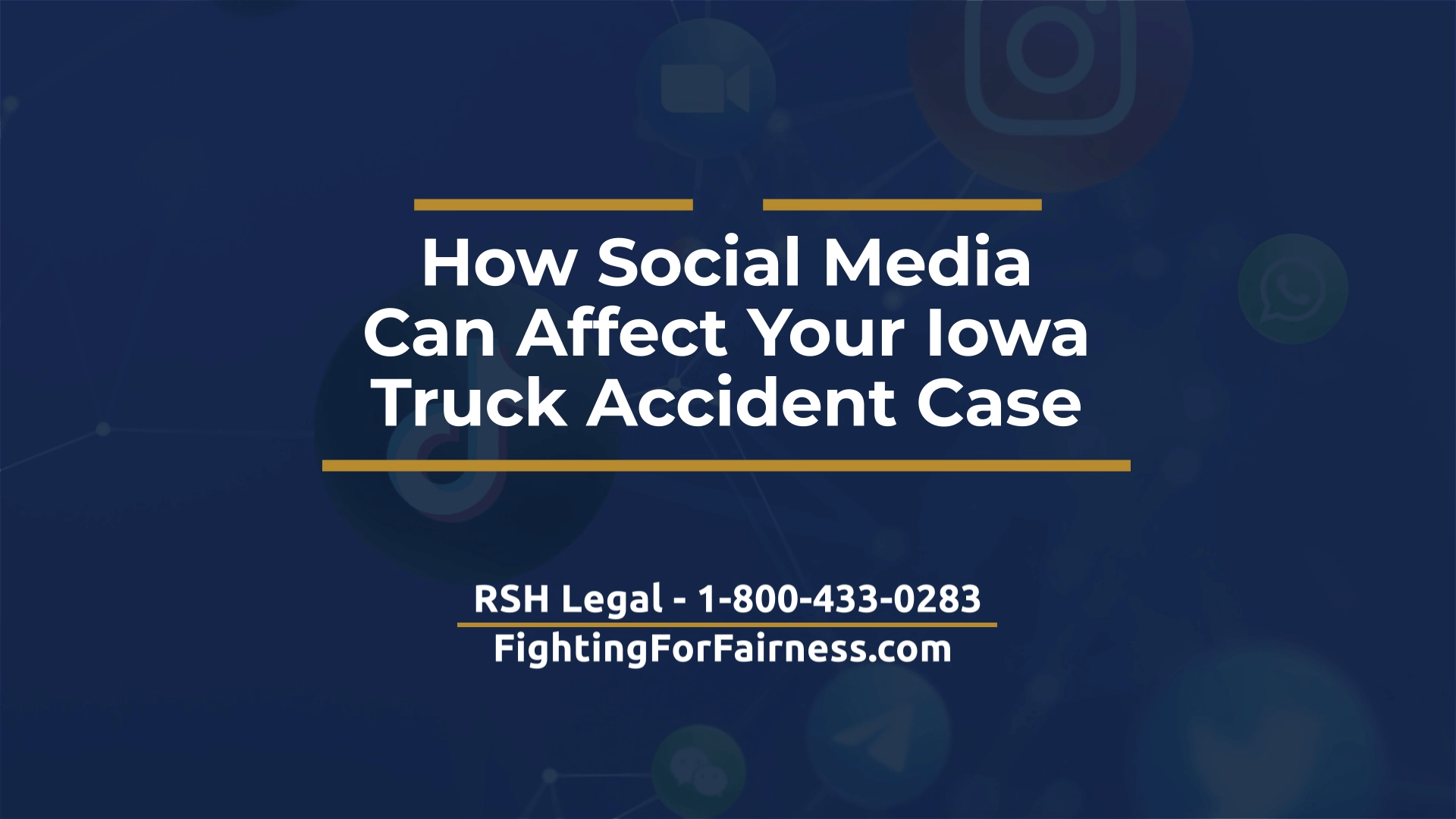Semi Accident Lawyer Representing Injury Victims in Des Moines, Iowa
You are in the right place if you want legal help after a tractor-trailer collision in Des Moines, Iowa. RSH Legal attorneys have represented victims of Des Moines truck accidents for over 30 years. Our lawyers have recovered millions of dollars for those whom trucking companies may have otherwise taken advantage of.
Living in Des Moines means sharing the road with large trucks. Unfortunately, semi-trucks can pose a danger to other motorists if they are not driven safely.
As the largest city in Iowa and the county seat of Polk County, Iowa’s largest county, Des Moines has a significant amount of tractor-trailer traffic. Manufacturers like Firestone, Titan Tire, John Deere, and Corteva all attract a steady stream of semi-trucks. Interstate 235, I-35, and I-80 as well as US 6, US 69, Iowa 28, Iowa 141, Iowa 163, Iowa 330, and Iowa 415 all run through or near Des Moines and all have a lot of 18-wheeler traffic.
Many truckers driving through Des Moines use local truck stops like Pilot Travel Center, Flying J Truck Stop, Love’s Truck Stop, and Kum N Go – Des Moines. In addition, Des Moines, Iowa is home to national trucking companies like Ruan Transportation, TMC Transportation, Crawford Trucking, Inc., and Johnsrud Transport, Inc. The result is that there are a lot of trucks on the road in Polk County, Iowa, and there are too many truck wrecks in Des Moines, in particular.
If you need an expert in Des Moines truck crash cases, you should call RSH Legal at 1-800-433-0283. We can help fight for fairness for you.
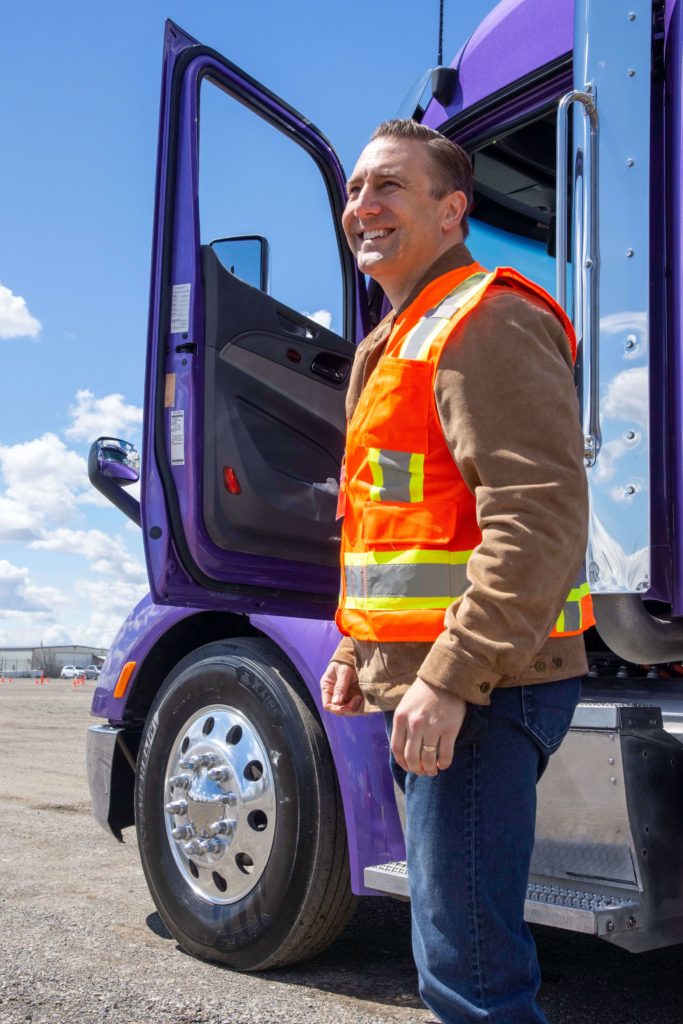
What kind of compensation is available after a Des Moines truck crash
Iowa law recognizes several different categories of compensation – often called “damages” – which can be sought after a semi accident.
Economic damages like medical expenses and lost earnings are well-known categories of compensation.
Another category of damages is often referred to as “non-economic” damages or “human” damages. Non-economic damages in an Iowa tractor-trailer collision case can include:
Loss of Function of the Full Mind and/or Body
This is the part of a verdict where a jury can compensate an injury victim for the inability of their mind and/or body to function in a normal manner after an injury. This type of loss often requires testimony from medical experts.
Iowa law gives a jury or judge a lot of freedom to decide the value of this loss based upon the particular facts and circumstances of the case. The law requires this loss to be calculated in two parts – past (meaning from the time of the injury to the date of trial) and future (meaning from the date of the trial to the end of the person’s likely life span). Any verdict for future loss of function must be reduced to present value.
Physical and/or Mental Pain and Suffering
This is the part of a verdict where a jury can compensate an injury victim for:
- Physical pain and suffering
- Mental pain and suffering
- Mental anguish
- Loss of enjoyment of life
Like with loss of function, Iowa law gives a jury or judge a lot of freedom to decide the value of this loss based upon the particular facts and circumstances of the case.
The law requires physical and/or mental pain and suffering to be calculated in two parts – past (meaning from the time of the injury to the date of trial) and future (meaning from the date of the trial to the end of the person’s likely life span). Any verdict for future physical and mental pain and suffering must be reduced to present value.
Loss of Consortium
This is the part of a verdict where Iowa law allows a jury to compensate certain members of an injury victim’s family for the impact of an injury on their relationship. Iowa law currently recognizes spouses, children, and parents as having the right to compensation for damage to their relationships to the injured person.
“Spousal consortium” is the fellowship of spouses and the right of each other to the benefits of company, cooperation, affection, the aid of the other in every marital relationship, general usefulness, industry, and attention within the home and family. It does not include loss of financial support from the injured spouse, nor mental anguish caused by the spouse’s injury.
“Parental consortium” is the relationship between parent and child and the right of each to the benefits of companionship, comfort, guidance, affection, the aid of the other in every parent/child relation, general usefulness, industry, and attention within the family. It does not include the loss of financial support from the injured parent or child, nor mental anguish caused by the injury to the parent or child.
Figuring out the amount that should be included in an Iowa personal injury settlement for loss of function of the mind and body, physical and mental pain and suffering, and/or loss of consortium comes down to estimating what a jury would likely award if the case went to trial.
Calculating what a jury is likely to do requires a detailed analysis of all the facts about the underlying accident, all the details of the lives of the injured party and the defendant or defendants, and experience and knowledge about how juries in the jurisdiction tend to value different kinds of harms and losses.
For obvious reasons, this type of analysis is best performed by an experienced Iowa lawyer with experience in truck accident claims. To speak to one of our skilled truck crash lawyers, call 1-800-433-0283.
Unexpected Ways You Can Sink Your Des Moines Truck Crash Case
If you were injured in a Des Moines semi accident – whether you like it or not – your life and activities are now under a microscope. The trucking company and its insurance carrier will be looking for any way it can – fair or unfair – to avoid compensating you for your injuries. A truck accident lawyer can try to get you a fair settlement for your harm and losses, but a lawyer cannot stop you from making certain mistakes that could ruin your case.
Here are some things that many people do not realize can sink your Des Moines tractor-trailer collision case:
Failing to follow up with medical providers
If a medical provider suggests that you try a treatment for your crash-related injuries or come back as needed, and you don’t follow through with the treatment, or you never go back, your injury claim can be damaged. If you do not get treatment for your truck accident injury, you can have a hard time proving that you are hurting.
The trucking company and its insurance carrier will argue that you must already be healed from your injury, or it will try to spin your failure to follow up with medical providers as not wanting to get better. You should continue to seek medical treatment for your crash-related injury until it is healed or until your medical providers refuse to give additional treatment and tell you to “learn to live with it.”
Ignoring your medical bills
Medical providers will continue their attempts to collect payment regardless of an ongoing truck crash lawsuit. Just because you’ve hired an attorney doesn’t mean that you can stop responding to medical bills.
Having medical bills turned over to collection agencies can damage your credit. Dealing with debt collectors creates outside pressure for you to settle your semi collision case too soon and for less than it’s worth.
You should pay all the medical bills that you can—you will be reimbursed for your out-of-pocket expenses if your case is successful. If you cannot pay all of your medical bills, you can personally contact the medical providers and work out a payment plan that you can afford. Do not, however, apply for a loan with a legal financing company without talking to your attorney first.
Failing to attempt to return to work
If you decide not to return to work after your injury (without a doctor’s note) or if you decide not to go back to work even after your medical provider tells you that you can try to work, it will severely hurt your tractor-trailer collision case.
The trucking company will rarely put money in a settlement for lost wages after a truck wreck if you do not have medical documentation stating that you could not work for a period of time. The trucking company will argue that an extended stay off work – without a doctor’s excuse – was an attempt to “milk the system” and “cash in” after a truck accident.
If a medical provider recommends not returning to work after an injury, get it in writing. If a doctor tells you that it’s okay to return to work, you should make an honest attempt to go back to your job. If your attempt fails, immediately go back to the medical provider who released you, report on your failed attempt, and ask what can be done medically so you can make a successful return to work in the future.
Failing to report new injuries
A new injury, or an aggravation of your crash-related injury that is severe enough to require medical treatment, can affect your case.
The trucking company will try to blame your current problems on the new non-crash-related injury or aggravation rather than on the crash-related injury it must pay for. You should immediately contact your truck accident attorney if you suffer a new injury or aggravation that requires any mention to a medical provider. That will give your attorney a chance to advise you about how the new injury impacts your case.
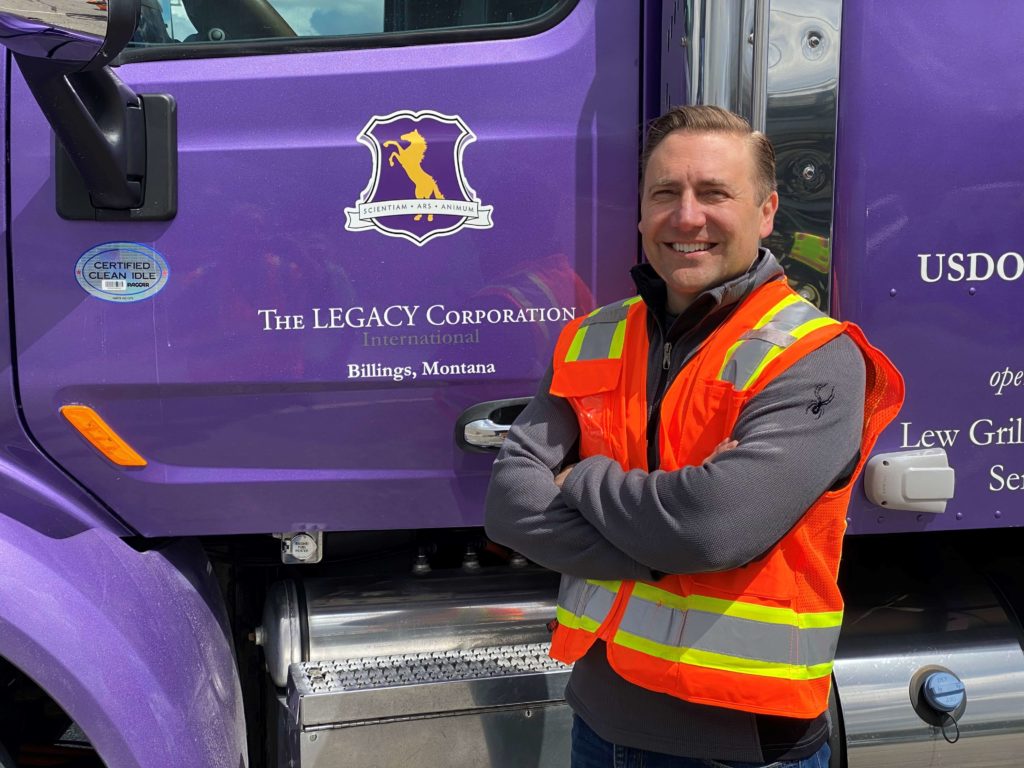
Important Warning for People Trying to Settle Their Tractor-Trailer Collision Case Without an Attorney
You may not be able to keep the settlement cash you are being offered. If the truck driver was clearly at fault, the trucking company’s insurance carrier will often try to convince you to settle quickly by offering a settlement amount that – at first glance – deceptively seems fair.
What the trucking company’s insurance carrier usually fails to mention is that you may not be legally entitled to keep all the money it is offering you. This is because of a federal law called The Employee Retirement Income Security Act of 1974 (“ERISA” for short).
In some cases, ERISA can allow your health insurance company to collect the money they spent on your medical care if you are ever paid money by the person or company responsible for the truck accident. This settlement cash grab is a possibility whenever you have had crash-related medical bills or lost wages paid by:
- Your health insurance (either a private plan or Medicare or Medicaid)
- Your auto insurance (under “medical payment” coverage)
- Your disability insurance (short-term or long-term)
- Your workers’ compensation insurance (if you were on the job at the time of the crash)
Almost all the insurance policies described above will require you to pay back any insurance payments received if you reach a settlement with the truck driver, the trucking company, or any insurance company who insured them.
This legal requirement, which is known as subrogation, is hidden in most of your insurance contracts. It can leave an unsuspecting semi crash victim with little or nothing after a settlement. That is why truck wreck victims should find out how much of any settlement amount they will be allowed to keep before they agree to a settlement.
This calculation requires a careful review of all paid medical bills and all applicable insurance policies. This is a situation where failing to read the fine print can cost you dearly.
After a settlement or a jury verdict, the truck crash victim can receive a letter from his or her insurance company stating that the victim is legally obligated to reimburse the insurance company for the amount of the medical benefits paid. The letter often threatens a lawsuit if you don’t pay them.
You can protect yourself from this type of settlement cash grab. An experienced truck accident attorney can often negotiate a reduced repayment amount with an insurance company before a settlement with the truck driver’s insurance is finalized. Sometimes this reduced repayment amount alone can justify the cost of the truck accident attorney’s attorney fees.
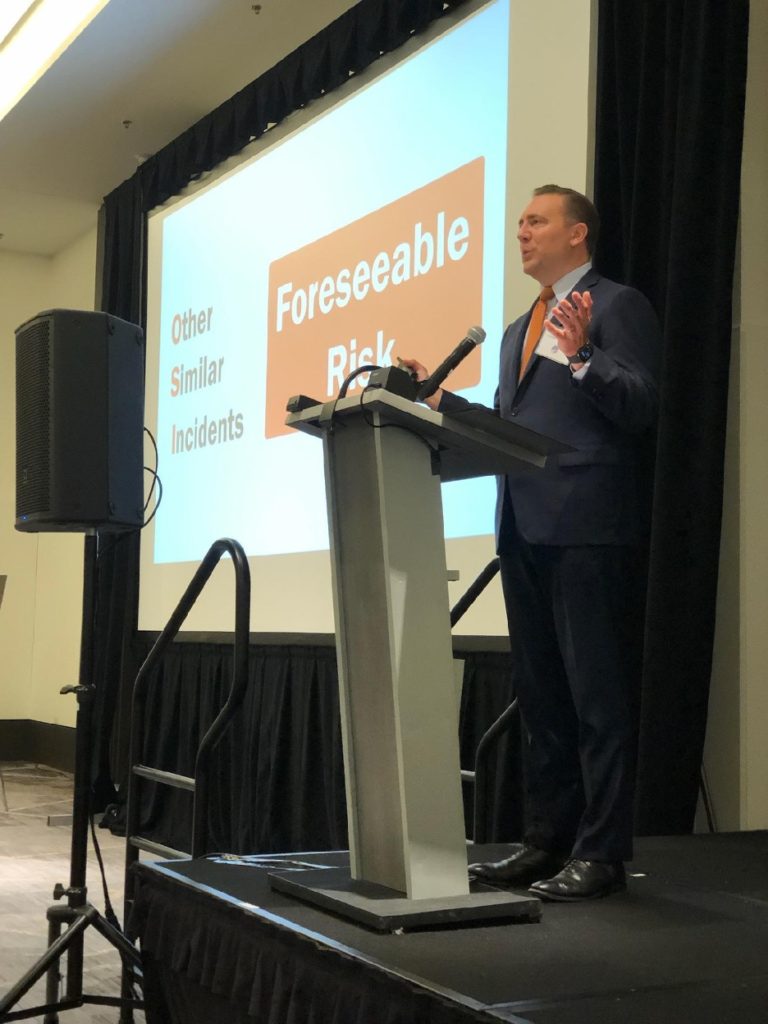
RSH Legal, located in Cedar Rapids, handles car accident claims throughout Iowa, including Des Moines.

Tim Semelroth
Board-Certified Trial Attorney

Pressley Henningsen
AV-Rated Trial Attorney
A car came through the median and we were hit head on. Every bone in my body from my lower jaw down to the bottom of my feet was broken. My medical bills were in the hundreds of thousands of dollars. I can’t imagine going through something like this without someone like Tim or RSH Legal.
See more Client ReviewsClient Reviews


